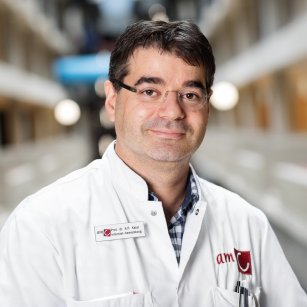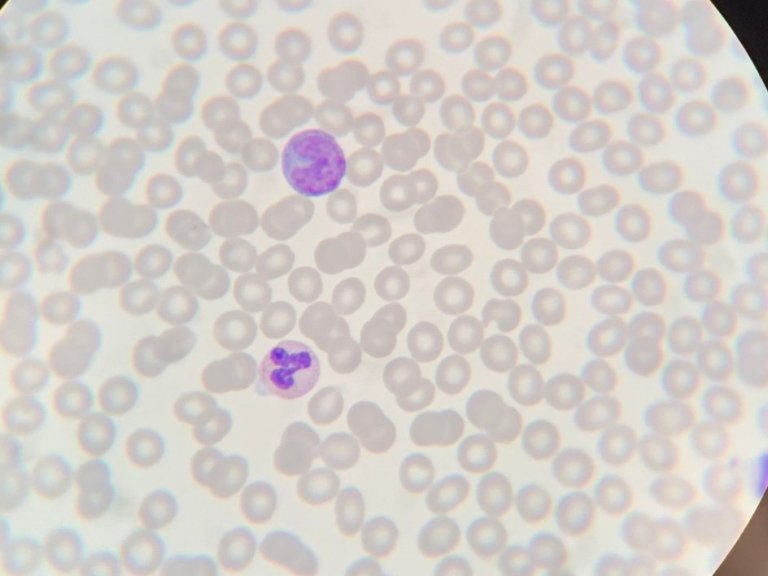A scientific article was published today in The Lancet Oncology about this combination of the drugs ibrutinib and venetoclax against CLL. The NEJM Evidence also recently published on these findings.
CLL is a form of blood cancer that originates in the lymph nodes. It is the most common form of leukemia in the Western world, and no cure has been found for it yet. While treatments can keep the disease under control for many years, in time the drugs lose their effectiveness, because the cancer cells become resistant to them. This is why it is important to have access to several drugs, so that the patient can switch when necessary.
Much more effective
The arsenal of drugs for treating CLL has increased in recent years with the advent of inhibitors such as ibrutinib and venetoclax, which are given in the form of tablets. The combination of these two drugs has now been directly compared to the combination of standard chemotherapy and antibody therapy for the first time. The trial was conducted on 211 CLL patients, all older people who had never been treated before. The study, published in NEJM Evidence, reveals that a combination of the two inhibitors is much more effective than the standard approach.

Winning team
Years of fundamental research conducted at Amsterdam UMC helped set the stage for this clinical study. Molecular biologist Eric Eldering and hematologist Arnon Kater have been studying the behavior of CLL cancer cells in the lymph nodes and blood for more than fifteen years. Their research has produced valuable information about how cancer cells develop resistance to drugs.
Five years ago, professors Eldering and Kater found the first indications – initially in the laboratory, later in mice – that venetoclax and ibrutinib form an effective combination. Lab studies in cell cultures revealed what the ‘winning team’ of ibrutinib/venetoclax does: “Ibrutinib banishes malignant cells in the lymph nodes to the blood, where they are at their most vulnerable,” explains Kater. “Venetoclax subsequently cleans them up.”
Stopping and restarting treatment
A next question the researchers wanted to answer was whether you can safely stop the combination treatment after a year. “Ibrutinib is now given continuously until it no longer works,” says Kater. “If you stop early, the disease quickly returns. But ideally, you want patients to be exposed to these drugs for as short a time as possible. There are several reasons for this. Ibrutinib has side effects such as diarrhea and joint pain. The drug also makes patients vulnerable to coronavirus infection and can damage the heart. It is also very expensive. Moreover, the shorter you take the drug, the less chance the disease will have to build resistance. By stopping for certain periods and taking the medication only when needed, you can use the drugs for much longer.”
Arnon Kater, along with his Danish colleague Carsten Niemann, set up a study into whether patients could safely stop the combination of venetoclax and ibrutinib after one year. Using a highly sensitive test that can detect tiny amounts of cancer cells, they selected patients who had no detectable levels of CLL cells left. These patients were allowed to stop taking the medication. As soon the test revealed cancer cells again, the treatment was restarted.
It was found that a significant number of patients were able to stop for longer periods of time. Moreover, the medication still proved to work if the disease returned. A study on this finding has now been published in Lancet Oncology.

CLL as a chronic disease
Is this good news for the patients? “We once proclaimed that CLL would one day change from a fatal disease to a chronic disease,” says Eldering. “We are on the right track to achieve this. We can already treat patients for much longer before resistance develops.” “That’s because we have more drugs at our disposal,” adds Kater. “But so far, with every drug we’ve trialed, we’ve seen it losing its effectiveness eventually. This is probably also true of this combination. You can safely stop and start again, but the question is how long you can continue to do this. We don’t know that yet.”
New studies
Eldering and Kater are therefore now investigating new ways to treat and hopefully cure this disease. In particular, studies of the metabolism of cancer cells on the one hand and of immune cells on the other appear promising. Last month the group published their findings in the scientific journals Blood and Blood advances respectively.
Text: Irene van Elzakker
Photography: Adobestock and Marieke de Lorijn (portraits)




